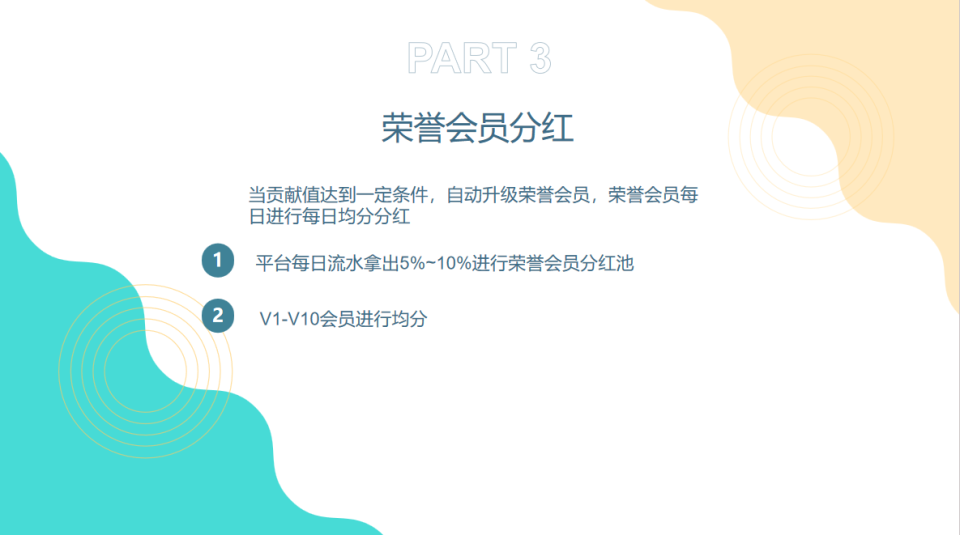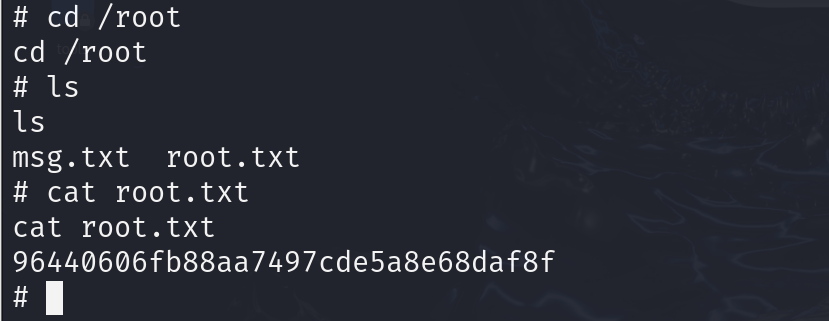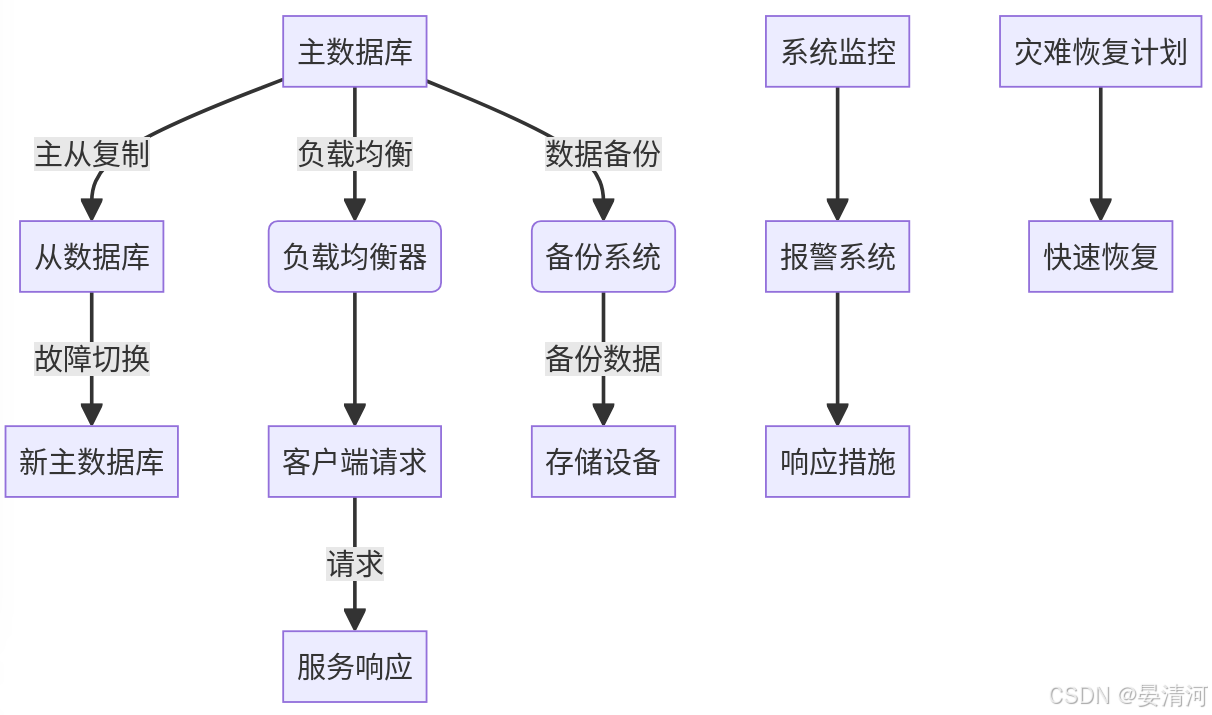XTuner 微调个人小助手认知
- 环境配置
- 模型效果预览
- 微调
- 数据准备
- 微调配置
- 微调训练
- 权重格式转换
- 模型合并
- 页面对话
环境配置
# 创建虚拟环境
conda create -n xtuner0812 python=3.10 -y
# 激活虚拟环境(注意:后续的所有操作都需要在这个虚拟环境中进行)
conda activate xtuner0812
# 安装一些必要的库
conda install pytorch==2.1.2 torchvision==0.16.2 torchaudio==2.1.2 pytorch-cuda=12.1 -c pytorch -c nvidia -y
# 安装其他依赖
pip install transformers==4.39.3
pip install streamlit==1.36.0
#安装XTuner
mkdir -p /root/demo
cd /root/demo
git clone -b v0.1.21 https://github.com/InternLM/XTuner /root/demo/XTuner
cd /root/demo/XTuner
# 执行安装
pip install -e '.[deepspeed]' -i https://mirrors.aliyun.com/pypi/simple/
模型效果预览
python -m streamlit run /root/Tutorial/tools/xtuner_streamlit_demo.py

微调
数据准备
使用以下脚本生成微调数据:
import json
# 设置用户的名字
name = '靓仔'
# 设置需要重复添加的数据次数
n = 1875
# 初始化数据
data = [
{"conversation": [{"input": "请介绍一下你自己", "output": "我是{}的小助手,内在是上海AI实验室书生·浦语的1.8B大模型哦".format(name)}]},
{"conversation": [{"input": "你是谁", "output": "我是{}的小助手,内在是上海AI实验室书生·浦语的1.8B大模型哦".format(name)}]},
{"conversation": [{"input": "你在实战营做什么", "output": "我在这里帮助{}完成XTuner微调个人小助手的任务".format(name)}]},
{"conversation": [{"input": "你可以做什么", "output": "我在这里帮助{}完成XTuner微调个人小助手的任务".format(name)}]}
]
# 通过循环,将初始化的对话数据重复添加到data列表中
for i in range(n):
data.append(data[0])
data.append(data[1])
# 将data列表中的数据写入到'datas/assistant.json'文件中
with open('datas/assistant.json', 'w', encoding='utf-8') as f:
# 使用json.dump方法将数据以JSON格式写入文件
# ensure_ascii=False 确保中文字符正常显示
# indent=4 使得文件内容格式化,便于阅读
json.dump(data, f, ensure_ascii=False, indent=4)
微调配置
# 查看所有配置文件
xtuner list-cfg
# 匹配internlm2相关的配置文件
xtuner list-cfg -p internlm2
# 复制配置文件到指定目录
xtuner copy-cfg internlm2_chat_1_8b_qlora_alpaca_e3 /root/demo/xtuner_demo/
修改后的配置文件如下:
# Copyright (c) OpenMMLab. All rights reserved.
import torch
from datasets import load_dataset
from mmengine.dataset import DefaultSampler
from mmengine.hooks import (CheckpointHook, DistSamplerSeedHook, IterTimerHook,
LoggerHook, ParamSchedulerHook)
from mmengine.optim import AmpOptimWrapper, CosineAnnealingLR, LinearLR
from peft import LoraConfig
from torch.optim import AdamW
from transformers import (AutoModelForCausalLM, AutoTokenizer,
BitsAndBytesConfig)
from xtuner.dataset import process_hf_dataset
from xtuner.dataset.collate_fns import default_collate_fn
from xtuner.dataset.map_fns import alpaca_map_fn, template_map_fn_factory
from xtuner.engine.hooks import (DatasetInfoHook, EvaluateChatHook,
VarlenAttnArgsToMessageHubHook)
from xtuner.engine.runner import TrainLoop
from xtuner.model import SupervisedFinetune
from xtuner.parallel.sequence import SequenceParallelSampler
from xtuner.utils import PROMPT_TEMPLATE, SYSTEM_TEMPLATE
#######################################################################
# PART 1 Settings #
#######################################################################
# Model
pretrained_model_name_or_path = '/root/share/new_models/Shanghai_AI_Laboratory/internlm2-chat-1_8b' #修改此处模型路径
use_varlen_attn = False
# Data
alpaca_en_path = '/root/demo/xtuner_demo/datas/assistant.json' #修改此处数据路径
prompt_template = PROMPT_TEMPLATE.internlm2_chat
max_length = 2048
pack_to_max_length = True
# parallel
sequence_parallel_size = 1
# Scheduler & Optimizer
batch_size = 1 # per_device
accumulative_counts = 16
accumulative_counts *= sequence_parallel_size
dataloader_num_workers = 0
max_epochs = 3
optim_type = AdamW
lr = 2e-4
betas = (0.9, 0.999)
weight_decay = 0
max_norm = 1 # grad clip
warmup_ratio = 0.03
# Save
save_steps = 500
save_total_limit = 2 # Maximum checkpoints to keep (-1 means unlimited)
# Evaluate the generation performance during the training
evaluation_freq = 500
SYSTEM = SYSTEM_TEMPLATE.alpaca
evaluation_inputs = [
'请介绍一下你自己', 'Please introduce yourself'
] #修改此处
#######################################################################
# PART 2 Model & Tokenizer #
#######################################################################
tokenizer = dict(
type=AutoTokenizer.from_pretrained,
pretrained_model_name_or_path=pretrained_model_name_or_path,
trust_remote_code=True,
padding_side='right')
model = dict(
type=SupervisedFinetune,
use_varlen_attn=use_varlen_attn,
llm=dict(
type=AutoModelForCausalLM.from_pretrained,
pretrained_model_name_or_path=pretrained_model_name_or_path,
trust_remote_code=True,
torch_dtype=torch.float16,
quantization_config=dict(
type=BitsAndBytesConfig,
load_in_4bit=True,
load_in_8bit=False,
llm_int8_threshold=6.0,
llm_int8_has_fp16_weight=False,
bnb_4bit_compute_dtype=torch.float16,
bnb_4bit_use_double_quant=True,
bnb_4bit_quant_type='nf4')),
lora=dict(
type=LoraConfig,
r=64,
lora_alpha=16,
lora_dropout=0.1,
bias='none',
task_type='CAUSAL_LM'))
#######################################################################
# PART 3 Dataset & Dataloader #
#######################################################################
alpaca_en = dict(
type=process_hf_dataset,
dataset=dict(type=load_dataset, path='json', data_files=dict(train=alpaca_en_path)), #修改此处数据加载方式
tokenizer=tokenizer,
max_length=max_length,
dataset_map_fn=None, #修改此处
template_map_fn=dict(
type=template_map_fn_factory, template=prompt_template),
remove_unused_columns=True,
shuffle_before_pack=True,
pack_to_max_length=pack_to_max_length,
use_varlen_attn=use_varlen_attn)
sampler = SequenceParallelSampler \
if sequence_parallel_size > 1 else DefaultSampler
train_dataloader = dict(
batch_size=batch_size,
num_workers=dataloader_num_workers,
dataset=alpaca_en,
sampler=dict(type=sampler, shuffle=True),
collate_fn=dict(type=default_collate_fn, use_varlen_attn=use_varlen_attn))
#######################################################################
# PART 4 Scheduler & Optimizer #
#######################################################################
# optimizer
optim_wrapper = dict(
type=AmpOptimWrapper,
optimizer=dict(
type=optim_type, lr=lr, betas=betas, weight_decay=weight_decay),
clip_grad=dict(max_norm=max_norm, error_if_nonfinite=False),
accumulative_counts=accumulative_counts,
loss_scale='dynamic',
dtype='float16')
# learning policy
# More information: https://github.com/open-mmlab/mmengine/blob/main/docs/en/tutorials/param_scheduler.md # noqa: E501
param_scheduler = [
dict(
type=LinearLR,
start_factor=1e-5,
by_epoch=True,
begin=0,
end=warmup_ratio * max_epochs,
convert_to_iter_based=True),
dict(
type=CosineAnnealingLR,
eta_min=0.0,
by_epoch=True,
begin=warmup_ratio * max_epochs,
end=max_epochs,
convert_to_iter_based=True)
]
# train, val, test setting
train_cfg = dict(type=TrainLoop, max_epochs=max_epochs)
#######################################################################
# PART 5 Runtime #
#######################################################################
# Log the dialogue periodically during the training process, optional
custom_hooks = [
dict(type=DatasetInfoHook, tokenizer=tokenizer),
dict(
type=EvaluateChatHook,
tokenizer=tokenizer,
every_n_iters=evaluation_freq,
evaluation_inputs=evaluation_inputs,
system=SYSTEM,
prompt_template=prompt_template)
]
if use_varlen_attn:
custom_hooks += [dict(type=VarlenAttnArgsToMessageHubHook)]
# configure default hooks
default_hooks = dict(
# record the time of every iteration.
timer=dict(type=IterTimerHook),
# print log every 10 iterations.
logger=dict(type=LoggerHook, log_metric_by_epoch=False, interval=10),
# enable the parameter scheduler.
param_scheduler=dict(type=ParamSchedulerHook),
# save checkpoint per `save_steps`.
checkpoint=dict(
type=CheckpointHook,
by_epoch=False,
interval=save_steps,
max_keep_ckpts=save_total_limit),
# set sampler seed in distributed evrionment.
sampler_seed=dict(type=DistSamplerSeedHook),
)
# configure environment
env_cfg = dict(
# whether to enable cudnn benchmark
cudnn_benchmark=False,
# set multi process parameters
mp_cfg=dict(mp_start_method='fork', opencv_num_threads=0),
# set distributed parameters
dist_cfg=dict(backend='nccl'),
)
# set visualizer
visualizer = None
# set log level
log_level = 'INFO'
# load from which checkpoint
load_from = None
# whether to resume training from the loaded checkpoint
resume = False
# Defaults to use random seed and disable `deterministic`
randomness = dict(seed=None, deterministic=False)
# set log processor
log_processor = dict(by_epoch=False)
微调训练
# 训练
xtuner train ./internlm2_chat_1_8b_qlora_alpaca_e3_copy.py
训练结束后,会在工作目录下得到一个work_dirs的目录,里面存有训练过程中的日志,以及训练后的权重。
权重格式转换
export MKL_SERVICE_FORCE_INTEL=1
export MKL_THREADING_LAYER=GNU
xtuner convert pth_to_hf ./internlm2_chat_1_8b_qlora_alpaca_e3_copy.py /root/demo/xtuner_demo/work_dirs/internlm2_chat_1_8b_qlora_alpaca_e3_copy/iter_192.pth ./hf
模型合并
对于 LoRA 或者 QLoRA 微调出来的模型其实并不是一个完整的模型,而是一个额外的层(Adapter),训练完的这个层最终还是要与原模型进行合并才能被正常的使用。
对于全量微调的模型(full)其实是不需要进行整合这一步的,因为全量微调修改的是原模型的权重而非微调一个新的 Adapter ,因此是不需要进行模型整合的。
export MKL_SERVICE_FORCE_INTEL=1
export MKL_THREADING_LAYER=GNU
xtuner convert merge /root/share/new_models/Shanghai_AI_Laboratory/internlm2-chat-1_8b ./hf ./merged --max-shard-size 2GB
页面对话
import copy
import warnings
from dataclasses import asdict, dataclass
from typing import Callable, List, Optional
import streamlit as st
import torch
from torch import nn
from transformers.generation.utils import (LogitsProcessorList,
StoppingCriteriaList)
from transformers.utils import logging
from transformers import AutoTokenizer, AutoModelForCausalLM # isort: skip
logger = logging.get_logger(__name__)
model_name_or_path = "/root/demo/xtuner_demo/merged"
@dataclass
class GenerationConfig:
# this config is used for chat to provide more diversity
max_length: int = 2048
top_p: float = 0.75
temperature: float = 0.1
do_sample: bool = True
repetition_penalty: float = 1.000
@torch.inference_mode()
def generate_interactive(
model,
tokenizer,
prompt,
generation_config: Optional[GenerationConfig] = None,
logits_processor: Optional[LogitsProcessorList] = None,
stopping_criteria: Optional[StoppingCriteriaList] = None,
prefix_allowed_tokens_fn: Optional[Callable[[int, torch.Tensor],
List[int]]] = None,
additional_eos_token_id: Optional[int] = None,
**kwargs,
):
inputs = tokenizer([prompt], padding=True, return_tensors='pt')
input_length = len(inputs['input_ids'][0])
for k, v in inputs.items():
inputs[k] = v.cuda()
input_ids = inputs['input_ids']
_, input_ids_seq_length = input_ids.shape[0], input_ids.shape[-1]
if generation_config is None:
generation_config = model.generation_config
generation_config = copy.deepcopy(generation_config)
model_kwargs = generation_config.update(**kwargs)
bos_token_id, eos_token_id = ( # noqa: F841 # pylint: disable=W0612
generation_config.bos_token_id,
generation_config.eos_token_id,
)
if isinstance(eos_token_id, int):
eos_token_id = [eos_token_id]
if additional_eos_token_id is not None:
eos_token_id.append(additional_eos_token_id)
has_default_max_length = kwargs.get(
'max_length') is None and generation_config.max_length is not None
if has_default_max_length and generation_config.max_new_tokens is None:
warnings.warn(
f"Using 'max_length''s default ({repr(generation_config.max_length)}) \
to control the generation length. "
'This behaviour is deprecated and will be removed from the \
config in v5 of Transformers -- we'
' recommend using `max_new_tokens` to control the maximum \
length of the generation.',
UserWarning,
)
elif generation_config.max_new_tokens is not None:
generation_config.max_length = generation_config.max_new_tokens + \
input_ids_seq_length
if not has_default_max_length:
logger.warn( # pylint: disable=W4902
f"Both 'max_new_tokens' (={generation_config.max_new_tokens}) "
f"and 'max_length'(={generation_config.max_length}) seem to "
"have been set. 'max_new_tokens' will take precedence. "
'Please refer to the documentation for more information. '
'(https://huggingface.co/docs/transformers/main/'
'en/main_classes/text_generation)',
UserWarning,
)
if input_ids_seq_length >= generation_config.max_length:
input_ids_string = 'input_ids'
logger.warning(
f"Input length of {input_ids_string} is {input_ids_seq_length}, "
f"but 'max_length' is set to {generation_config.max_length}. "
'This can lead to unexpected behavior. You should consider'
" increasing 'max_new_tokens'.")
# 2. Set generation parameters if not already defined
logits_processor = logits_processor if logits_processor is not None \
else LogitsProcessorList()
stopping_criteria = stopping_criteria if stopping_criteria is not None \
else StoppingCriteriaList()
logits_processor = model._get_logits_processor(
generation_config=generation_config,
input_ids_seq_length=input_ids_seq_length,
encoder_input_ids=input_ids,
prefix_allowed_tokens_fn=prefix_allowed_tokens_fn,
logits_processor=logits_processor,
)
stopping_criteria = model._get_stopping_criteria(
generation_config=generation_config,
stopping_criteria=stopping_criteria)
logits_warper = model._get_logits_warper(generation_config)
unfinished_sequences = input_ids.new(input_ids.shape[0]).fill_(1)
scores = None
while True:
model_inputs = model.prepare_inputs_for_generation(
input_ids, **model_kwargs)
# forward pass to get next token
outputs = model(
**model_inputs,
return_dict=True,
output_attentions=False,
output_hidden_states=False,
)
next_token_logits = outputs.logits[:, -1, :]
# pre-process distribution
next_token_scores = logits_processor(input_ids, next_token_logits)
next_token_scores = logits_warper(input_ids, next_token_scores)
# sample
probs = nn.functional.softmax(next_token_scores, dim=-1)
if generation_config.do_sample:
next_tokens = torch.multinomial(probs, num_samples=1).squeeze(1)
else:
next_tokens = torch.argmax(probs, dim=-1)
# update generated ids, model inputs, and length for next step
input_ids = torch.cat([input_ids, next_tokens[:, None]], dim=-1)
model_kwargs = model._update_model_kwargs_for_generation(
outputs, model_kwargs, is_encoder_decoder=False)
unfinished_sequences = unfinished_sequences.mul(
(min(next_tokens != i for i in eos_token_id)).long())
output_token_ids = input_ids[0].cpu().tolist()
output_token_ids = output_token_ids[input_length:]
for each_eos_token_id in eos_token_id:
if output_token_ids[-1] == each_eos_token_id:
output_token_ids = output_token_ids[:-1]
response = tokenizer.decode(output_token_ids)
yield response
# stop when each sentence is finished
# or if we exceed the maximum length
if unfinished_sequences.max() == 0 or stopping_criteria(
input_ids, scores):
break
def on_btn_click():
del st.session_state.messages
@st.cache_resource
def load_model():
model = (AutoModelForCausalLM.from_pretrained(model_name_or_path,
trust_remote_code=True).to(
torch.bfloat16).cuda())
tokenizer = AutoTokenizer.from_pretrained(model_name_or_path,
trust_remote_code=True)
return model, tokenizer
def prepare_generation_config():
with st.sidebar:
max_length = st.slider('Max Length',
min_value=8,
max_value=32768,
value=2048)
top_p = st.slider('Top P', 0.0, 1.0, 0.75, step=0.01)
temperature = st.slider('Temperature', 0.0, 1.0, 0.1, step=0.01)
st.button('Clear Chat History', on_click=on_btn_click)
generation_config = GenerationConfig(max_length=max_length,
top_p=top_p,
temperature=temperature)
return generation_config
user_prompt = '<|im_start|>user\n{user}<|im_end|>\n'
robot_prompt = '<|im_start|>assistant\n{robot}<|im_end|>\n'
cur_query_prompt = '<|im_start|>user\n{user}<|im_end|>\n\
<|im_start|>assistant\n'
def combine_history(prompt):
messages = st.session_state.messages
meta_instruction = ('')
total_prompt = f"<s><|im_start|>system\n{meta_instruction}<|im_end|>\n"
for message in messages:
cur_content = message['content']
if message['role'] == 'user':
cur_prompt = user_prompt.format(user=cur_content)
elif message['role'] == 'robot':
cur_prompt = robot_prompt.format(robot=cur_content)
else:
raise RuntimeError
total_prompt += cur_prompt
total_prompt = total_prompt + cur_query_prompt.format(user=prompt)
return total_prompt
def main():
# torch.cuda.empty_cache()
print('load model begin.')
model, tokenizer = load_model()
print('load model end.')
st.title('InternLM2-Chat-1.8B')
generation_config = prepare_generation_config()
# Initialize chat history
if 'messages' not in st.session_state:
st.session_state.messages = []
# Display chat messages from history on app rerun
for message in st.session_state.messages:
with st.chat_message(message['role'], avatar=message.get('avatar')):
st.markdown(message['content'])
# Accept user input
if prompt := st.chat_input('What is up?'):
# Display user message in chat message container
with st.chat_message('user'):
st.markdown(prompt)
real_prompt = combine_history(prompt)
# Add user message to chat history
st.session_state.messages.append({
'role': 'user',
'content': prompt,
})
with st.chat_message('robot'):
message_placeholder = st.empty()
for cur_response in generate_interactive(
model=model,
tokenizer=tokenizer,
prompt=real_prompt,
additional_eos_token_id=92542,
**asdict(generation_config),
):
# Display robot response in chat message container
message_placeholder.markdown(cur_response + '▌')
message_placeholder.markdown(cur_response)
# Add robot response to chat history
st.session_state.messages.append({
'role': 'robot',
'content': cur_response, # pylint: disable=undefined-loop-variable
})
torch.cuda.empty_cache()
if __name__ == '__main__':
main()



















